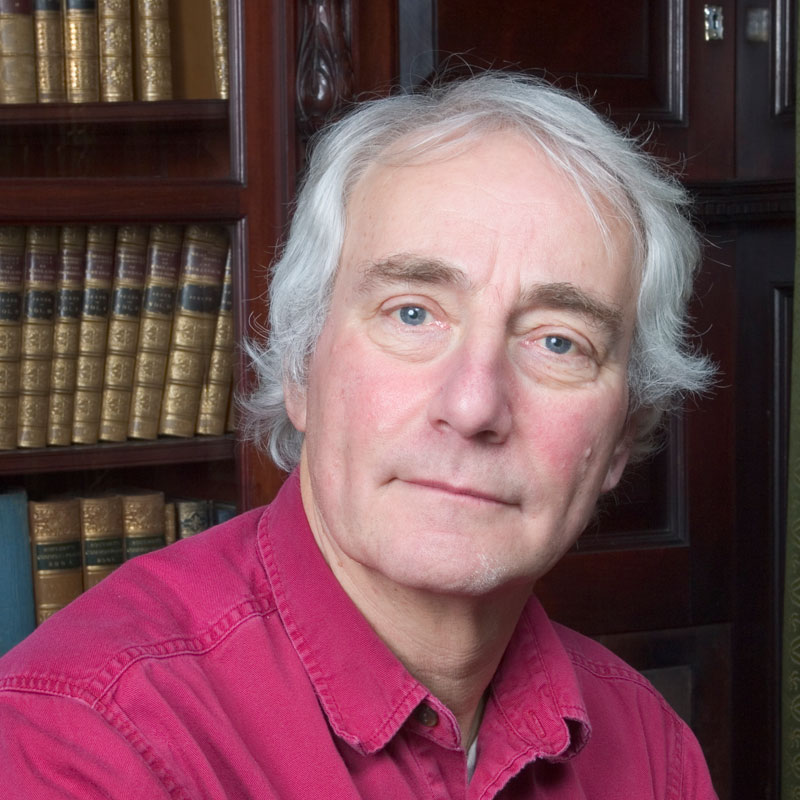
John Modell
Professor Emeritus
Bio
My doctoral training was in History, but I spent the next year studying Demography, and for years, I was among a small group of historians who increasingly focused History upon social and cultural rather than political, institutional, or intellectual concerns. Gradually, I developed a focus in “the life course,” what sociologists call the study of the way that particular kinds of societies produce particular kinds of characteristic lifetimes. After many years, I widened my perspective on this issue by incorporating elements of developmental psychology, to enable better insight into about what went on within the minds and feelings, and the agency, of the people whose lifetimes are also formed by external constraints and rewards. By the time all this “developing” on my own part was over, I realized that I was no longer a historian, exactly, although I continue an insistent and salutary bent on understanding society as a complex phenomenon in highly-contextualized, long-term change.
From this intellectual position, I evolved a second central interest in one particular modern institution that intentionally but messily seeks to construct for societies a particular set of life courses for their members: formal education, an institution that must be understood not only as it works with and upon its young constituents but as it works and struggles with the state and the family.
A third ongoing issue of great fascination to me, obviously a product of my own wander through disciplinary connections, is the nature of disciplinary and public knowledge in the social and behavioral sciences.
Education
Ph.D.: Columbia University, 1969Publications
Books and Quasi-Books
As sole author or co-author:
- The Economic Basis of Ethnic Solidarity: Japanese Americans as a "Middleman Minority" (with Edna Bonacich) (Berkeley: University of California Press, 1980).
- Into One's Own: from Youth to Adulthood in America, 1920-1975 (Berkeley: University of California Press, 1989).
- Recent Social Trends in the United States 1960-1990 (with Theodore Caplow, Howard M. Bahr, and Bruce A. Chadwick) (Frankfort a.M.: Campus Verlag and Montreal: McGill-Queens University Press, 1991).
As co-editor:
- Method, Practice, and Discourse in Social and Cultural History (edited, with Peter Karsten) (New York: New York University Press, 1992).
- Children in Time and Place (edited, with Glen H. Elder, Jr. and Ross H. Parke) (New York: Cambridge University Press, 1993).
Empirical Research Papers
As sole author:
- "The Peopling of a Working-Class Ward: Reading, Pennsylvania, 1850," Journal of Social History 5 (1971).
- "Family Structure, Family Income Strategies, and Family Consumption Patterns in Nineteenth-Century America," in Nineteenth-Century Family and Demographic Behavior, ed. Tamara K. Hareven and Maris Vinovskis (Princeton: Princeton University Press, 1978).
- "Toward an Ecology of Family Decisions: Fertility, Schooling, and Urbanization in Philadelphia, 1880-1920," Journal of Urban History 6 (1980).
- “Accomplishment and Discouragement at School: an International Comparison of Developmental Trends,” Advances in Life Course Research V (2000).
As co-author
- "Suburbanization and Change in the American Family," Journal of Interdisciplinary History 9 (1979).
- "Changing Risks, Changing Adaptations: American Families in the Nineteenth and Twentieth Centuries," in Kin and Communities, ed. Joan Challoner and Allen Lichtman (Washington: Smithsonian Institution Press, 1979).
- "Normative Aspects of American Marriage Timing Since World War II," Journal of Family History 5 (1980).
- "Dating Becomes the Way of American Youth," in Essays on the Family and Historical Change, ed. Leslie Page Moch and Gary D. Stark (College Station: Texas A&M Press, 1983).
- "Waging War and Marriage: Military Service and Family Formation, 1940-1950," (with Duane Steffey) Journal of Family History 13 (1988).
- "World War II in the Lives of Black Americans: Some Findings and an Interpretation" (with Marc Goulden and Sigurdur Magnusson), Journal of American History 77 (1990).
- "The First Conflict Resolution Movement, 1956-1971. An Attempt to Institutionalize Applied Interdisciplinary Social Science" (with Martha Harty), Journal of Conflict Resolution 35 (1991).
- "Child Development and Human Diversity" (with Robert Siegler," in Children in Time and Place (ed. Glen H. Elder, Jr., John Modell, and Ross H. Parke) (New York: Cambridge University Press, 1992).
- "Is there a Single Pattern of Social Evolution [with Yannick Lemel], in Convergence or Divergence? Comparing Recent Social Trends in Industrial Socities, ed. Simon Langlois, Theodore Caplow, Henri Mendras, and Wolfgang Glatzer (Frankfort a.M.: Campus Verlag and Montréal: McGill-Queens University Press, 1994).
- "Community, School, and Peer Group in Abilene (KS), 1939" (with Trent Alexander), History of Education Quarterly, 1997.
Commentary
As sole author
- "Historical Reflections on American Marriage," in Contemporary Marriage, ed. Kingsley Davis (New York: Russell Sage Foundation, 1985).
- "A Note of Methodological Caution in a Period of Interdisciplinarity," in Peter Stearns and Andrew J. Barnes, eds., Consciousness and Cognition: Historical Perspectives (New York: New York University Press, 1989).
- "Interdisciplinary Perspectives on the Study of the Family," (with others), in R. Duncan Luce, Neil Smelser and Dean Gerstein, eds., Leading Edges in Social and Behavioral Sciences (New York: Russell Sage Foundation, 1989.)
- "When May Social Capital Influence Children's School Performance?" and "Response to James S. Coleman," in Anne Petersen and Jeylan T. Mortimer, eds., Youth Unemployment and Society (New York: Cambridge Univesity Press, 1994).
- "The Uneasy Engagement of Ethnography and Human Development," in Anne Colby, Richard Jessor, and Richard Shweder, eds., Ethnography and Human Development: Context and Meaning in Social Inquiry (Chicago: University of Chicago Press, 1996).
- “Landmarks and Generativity,” in Frank F. Furstenberg and Erin Phelps, Eds., Looking at Lives (New York: Russell Sage Foundation, 2002).
- “Perhaps Less than Three Cheers for Self-Regulation,” Human Development, 2002.